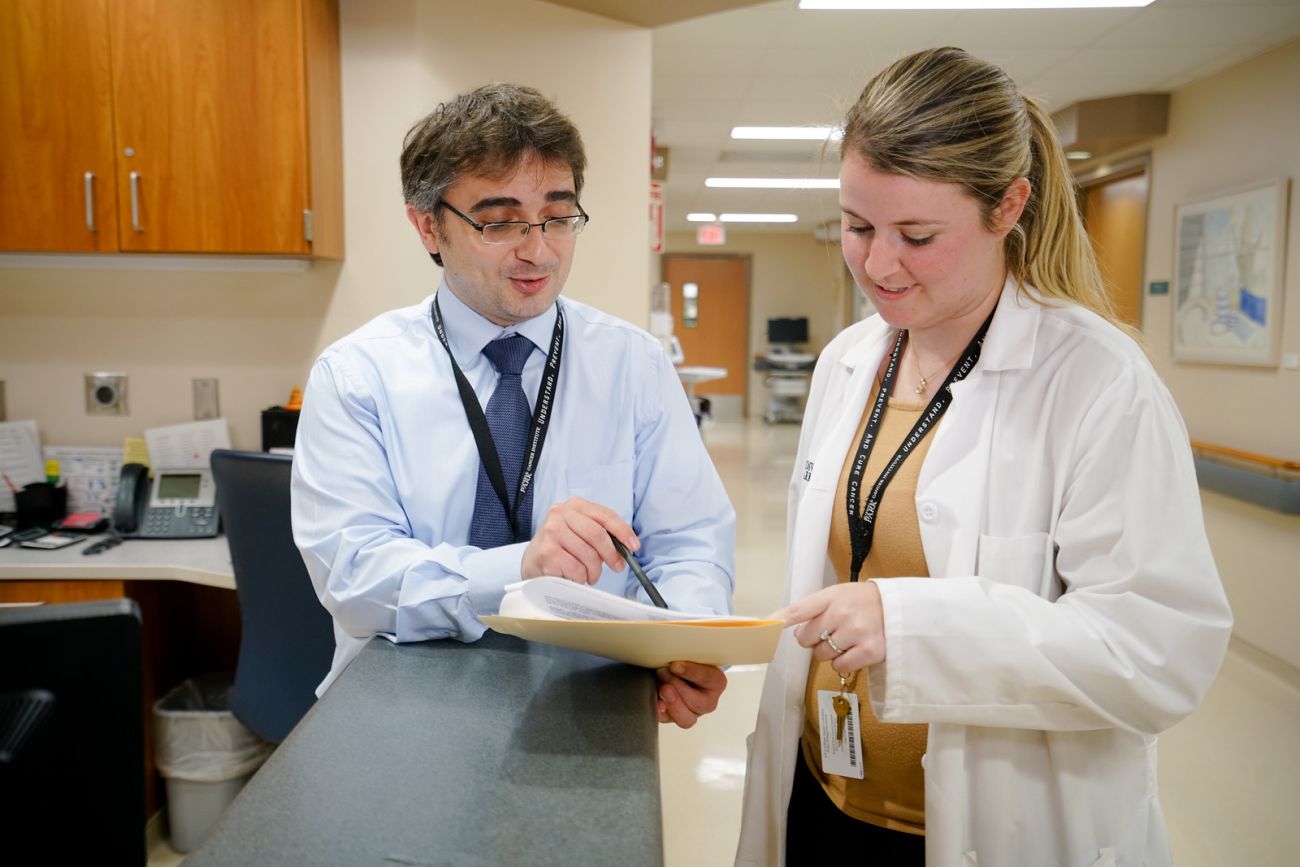Roswell Park offers one-stop-shopping for people at high risk for pancreatic cancer, providing evaluation, genetic testing and ongoing personalized surveillance to put your mind at ease.
Currently, screening for pancreatic cancer focuses on people at high risk for the disease. Because no one test can detect the disease reliably, Roswell Park’s experts will develop a pancreas cancer screening and surveillance plan specifically for you based on your personal risk. This plan may include:
- Blood tests, including a metabolic panel and tests to measure your levels of certain antigens and other biomarkers
- Endoscopic ultrasound and/or MRI every six months
- Genetic screening
- Periodic evaluation
If you are concerned you may be at increased risk for pancreatic cancer, please complete the following form. Based on the information that you provide, you may be eligible for an appointment to further discuss pancreatic cancer screening and/or genetic testing.
Who should have pancreatic cancer screening?
You should seek a consultation at Roswell Park for screening and surveillance for pancreatic cancer if you have one of the following risk factors:
- Two or more relatives in the same blood line diagnosed with pancreatic cancer
- A personal diagnosis or a family member with certain genetic predispositions for cancer, such as Peutz-Jeghers syndrome or Lynch syndrome.
- A personal diagnosis or a family member with a genetic mutation in one of these genes: ATM, BRCA1, BRCA2, CDKN2A, MLH1, MSH2, MSH6, EPCAM, PALB2, STK11, or TP53.
Pancreatic cancer prevention
While you cannot change your family history or the genes you were born with, you can take steps to reduce or eliminate other risk factors, including:
- Quit smoking. Kicking the habit helps to lower your risk for pancreas and many other cancers. We can help. Call the New York State Smokers’ Quitline (1-866-NY-QUITS or 1-866-697-8487). This free and confidential service, housed at Roswell Park, provides effective smoking cessation services to New Yorkers who want to stop smoking.
- Avoid alcohol or drink in moderation only. Limit drinking to no more than one drink a day for women; two drinks a day for men.
- Maintain a healthy weight
- Reduce your intake of high-fat foods
- Avoid exposure to toxic chemicals
